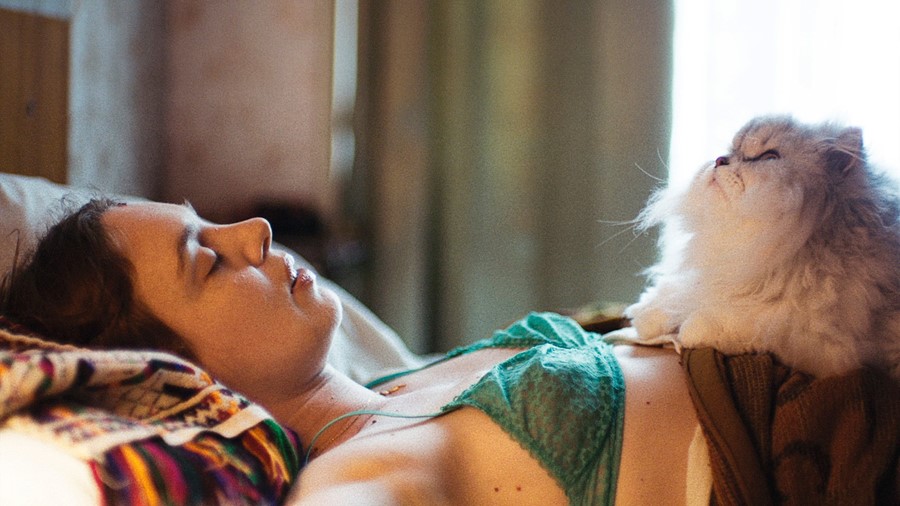Jeune Femme has been dubbed the “new Frances Ha”, but this moving portrait of a lonely young woman in Paris is a unique masterpiece all of its own
“I wanted to spend some time with somebody, with a woman, because I feel that everything goes too fast in life and this was my opportunity to really experience a character and their metamorphosis,” says French writer/director Léonor Serraille, sitting across from me in a hotel restaurant in London. We are talking about her breathtaking debut, Jeune Femme, a film widely hailed as the “French Frances Ha”, which won the Camera d’Or award at last year’s Cannes and is newly arrived on UK screens. The woman to whom she, and the film’s title, is referring, is Paula (Laetitia Dosch), a 31-year-old redhead, with one green eye and one blue, who we first encounter slamming her head violently against her ex-lover’s door in a dark Parisian hallway. Paula, we soon discover, has lost everything; the aforementioned boyfriend – an acclaimed photographer, with whom she’s spent the last ten years living in Mexico – has unceremoniously dumped her, and she has followed him to Paris with no money, no home and no plan beyond begging him to take her back.
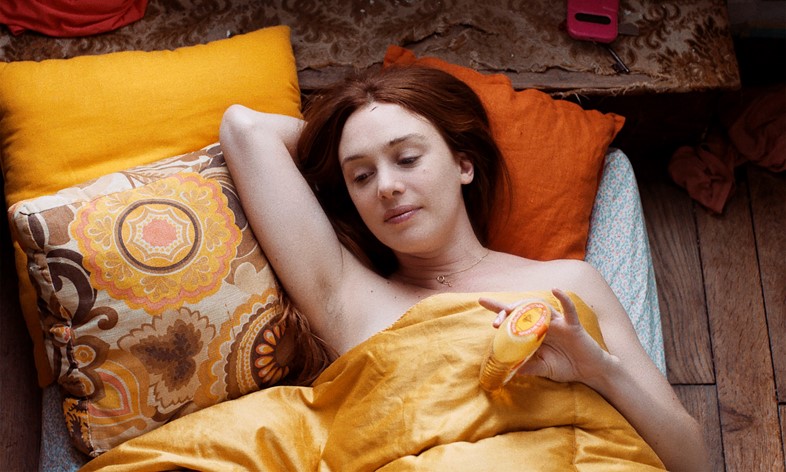
It’s fascinating to hear Serraille’s reason for making this film, namely because spending time with Paula – and experiencing the crushing blows and heady highs she encounters as she attempts to rebuild her life – is exactly what makes Jeune Femme so spellbinding to watch. Paula is a woman driven by her instincts; “a wild little monkey” (in the words of her friend Ousmane) who will leap onto the windowsill of a fancy restaurant or drop her towel in front of a hotel clerk without pause for thought. She is equally uninhibited when it comes to speaking her mind, sharing freely her thoughts and observations to whoever will listen – “Ties are passports for thickos,” she tells a suited man on a train. “The main thing for me was that Paula was somebody who was very talkative, that she would open her mouth and say such things, because I’m very shy and I wanted to create someone who’s the opposite to my own personality,” says the softly spoken Serraille, who herself was 31 while making the film, and who trained at Parisian film school La Fémis. “Paula goes through certain stages in Paris that I myself lived through and I wanted her to say the things that I didn’t say at the time.”
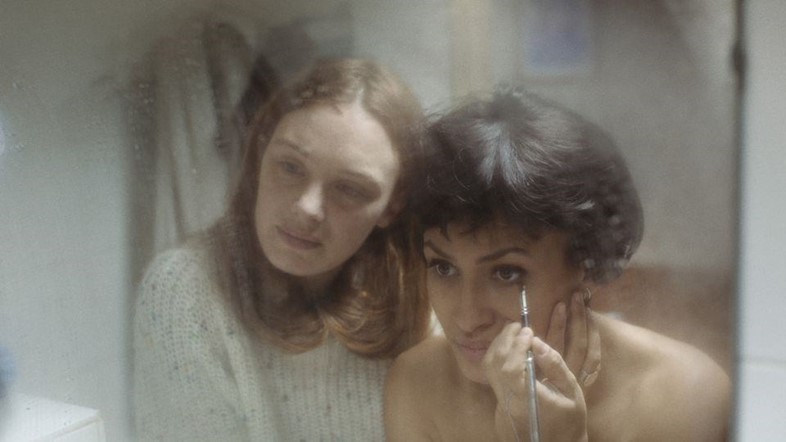
Serraille’s delightfully honest and perceptive script undoubtedly forms the backbone of our charmingly off-kilter protagonist, but it is the dazzlingly talented Dosch that breathes life into the role, her on-screen presence utterly magnetic. “The character is somebody who changes colour all the time, her face is always transforming, she’s a chameleon,” the director explains of the casting process, “so I needed somebody who was able to pull that off. I was really struck by Laeticia because when I Googled her she looked different in every photo; different colour tones created very strong contrasts in her appearance and I wasn’t able to put an age to her. This was very important for the film because Paula has these different ways of being, these many sides to her femininity.”
Indeed, much of the film comprises short vignettes which show Paula interacting with other characters, exposing a different side of herself with every new encounter. As the unqualified interviewee for a job in a pop-up lingerie store, she presents herself as a girly, hyper-enthusiastic neat freak, her made-up face giving off a rosy glow. As the nanny to an uptight little girl named Lila, she is the embodiment of carefree abandon, more childlike, at first, than the child in her care, whom she gently teases from her shell. As the daughter in a complex mother-daughter relationship, she is vulnerable yet unyielding, while as the patronised ex-girlfriend she is fiery and determined. “What I found so interesting about Paula is how, coming from a point where she’s got nothing left, she becomes a performer of her own life,” Serraille reveals. “She has nothing to lose, so she can be whoever she chooses, and sometimes she lies and invents things.”
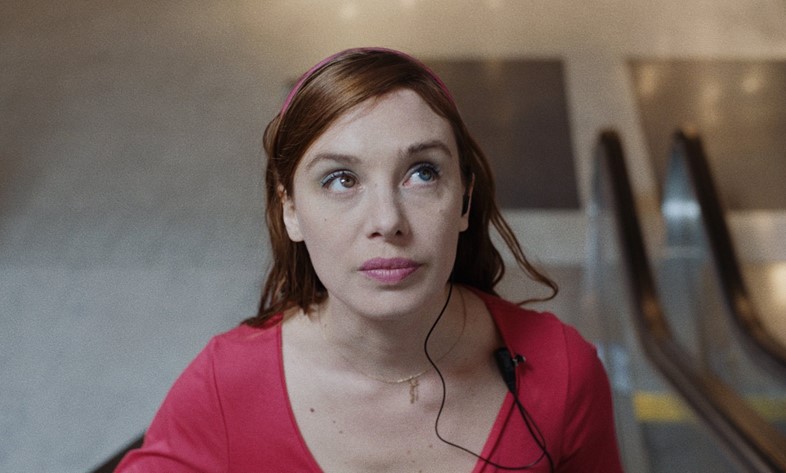
Serraille and the film’s director of photography, Emilie Noble, artfully highlight Paula’s many facets and guises using a diverse range of urban locations and a beguiling, William Eggleston-esque colour palette. In the lingerie store, Paula wears a garish pink to match the chichi environment into which she has blagged her way; while in a moving scene between Paula and Lila, the duo wear matching swimsuits in electric blue and frolic loudly at the local swimming pool, perfectly content in each other’s presence. “There were times when we didn’t have the resources to plan so I would say to Laeticia, ‘Just wear this jumper,’ which was a little frustrating,” Serraille laments – but when you notice such details as the fact that the yellow eyes of Paula’s fluffy white cat perfectly match the amber tones of her dated 1970s bedding, it’s hard to imagine this being the case. The director gives her DoP full credit when it comes to Jeune Femme’s arresting visuals. “We couldn’t use film because we didn’t have enough money, “ she says, “so we shot on digital but Emilie was determined to show me that digital can be beautiful – and she did!”
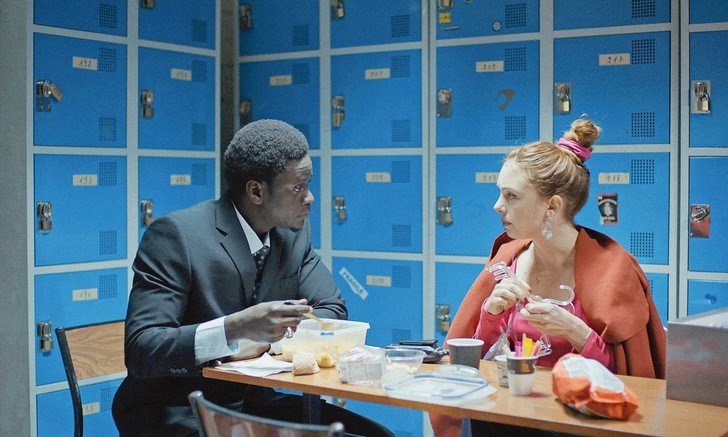
The sense of collaboration involved in making her first feature was one of Serraille’s favourite parts of the filmmaking experience. Before shooting, she, Dosch and Noble watched films together for inspiration – notably Sue by Amos Kollek and Mike Leigh’s Naked, both masterfully rendered tales of a character navigating a city – and she actively encouraged her predominantly female team to contribute their ideas throughout the process. “There was no hierarchy,” she says. “Many people on the shoot were doing work experience, but I wanted everybody’s input – that’s the beauty of cinema. The writing process is very long and very solitary but the preparation and the actual shoot are the complete opposite – you just have to let go. That goes against my nature, I’m very obsessive, but I learnt that that was the best way really to achieve truth, to find sincerity in the character.” This is something I can certainly attest to: Jeune Femme is a story so real that it’ll have you weeping with despair at life’s inherent loneliness one minute, and rejoicing in the power of human connection the next. But most of all it’s an extraordinary homage to the complextities of womanhood, with a cental character who is painfully relatable while being utterly unique.
Jeune Femme is in cinemas nationwide now.
